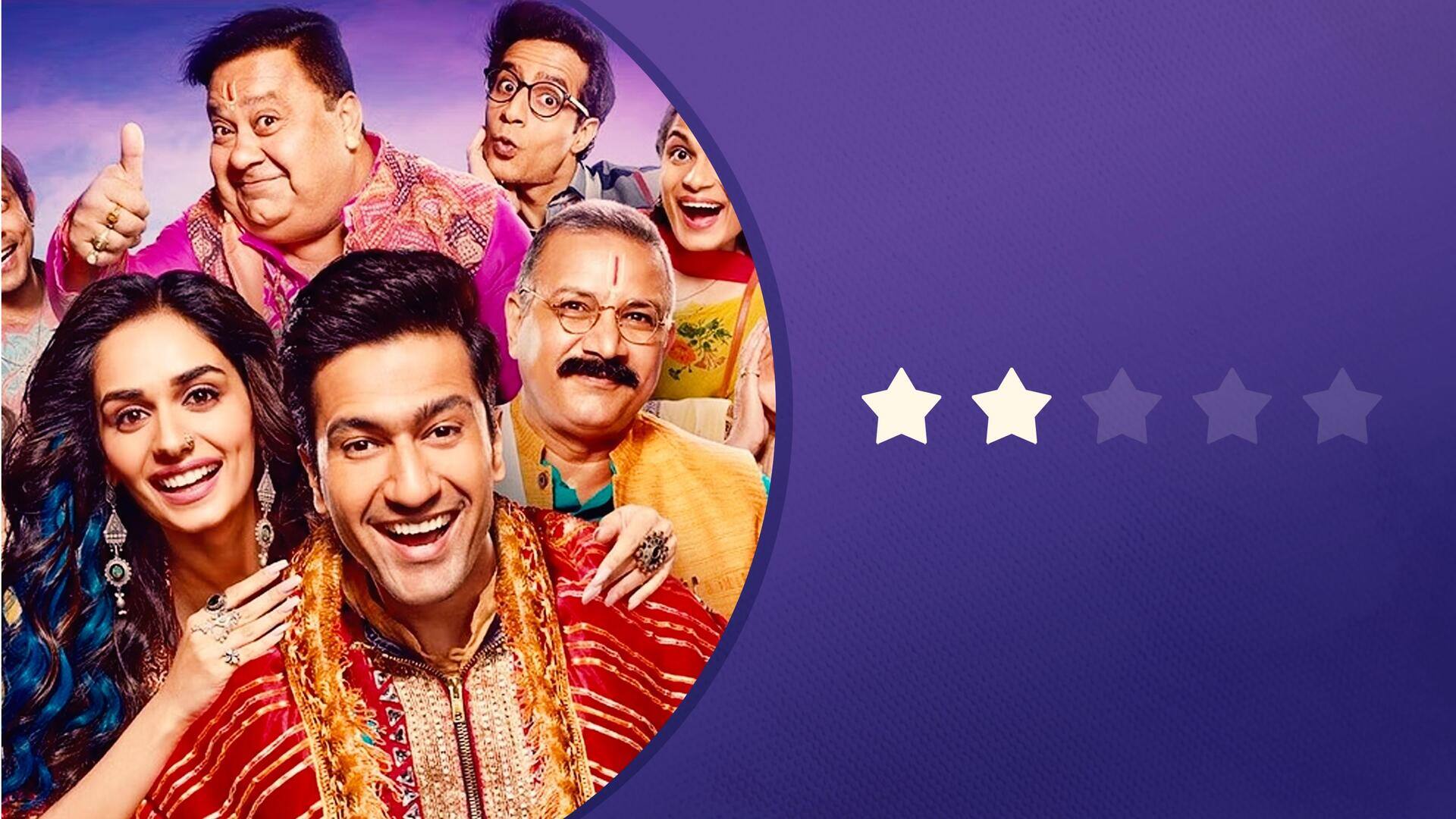
'The Great Indian Family' review: Strong performances, but scattershot drama
What's the story
Vijay Krishna Acharya's The Great Indian Family, starring Vicky Kaushal, Manushi Chhillar, Kumud Mishra, and Manoj Pahwa, is another entrant in the list of films with missed opportunities. Anchored by consistent, believable performances by Kaushal, Pahwa, and Mishra, the film bites the dust due to its predictability, over-the-top, caricaturish characters, and lack of enough substance. TGIF, thus, runs out of fuel soon after takeoff.
Plot
Film deals with religious conflicts in India
The story—already served to us on a platter in the trailer—revolves around Ved Vyas Tripathi (Kaushal), alias Bhajan Kumar, a devotional singer. He is born into a staunch pandit family and is the son of revered Tripathi ji, played by an excellent Mishra. However, he begins to question his entire life when he discovers that he's a Muslim and not Tripathi's real son.
#1
'TGIF' is bogged down by cliches
It's difficult to pinpoint any one aspect that goes wrong with TGIF because it consistently takes U-turns in places it needs to drive straight. The film's central conflict—about Bhajan's real identity—should have been the heart of the matter and somewhat is, but its impact is diluted when Acharya resorts to every trick in the book and throws one cliche after the other at us.
#2
The exposition starts but refuses to ever end
One of the many issues that doesn't let TGIF reach its maximum potential is the way it is laden with long-winded exposition; it enters the film even before the characters do and doesn't leave its side till the very conclusion. It's meant to introduce the characters but is too suffocated and jarring. I heaved a sigh of relief when the expository flashback finally ended.
#3
When thoughts are explained to viewers, they lose all value
As viewers, it must be left upon us to feel for Bhajan and fathom his emotions and vulnerabilities, but his inner monologue is rather annoyingly voiced out all the time. It repeatedly snaps connect, butchers all authenticity, and reminds us every few minutes, "This isn't real, you're watching a film!" When characters' thoughts are repeatedly spoken out, they are stripped of momentum and value.
#4
It takes too long to come to the point
TGIF doesn't clock two hours, but feels at least 2:30-hour-long, because it keeps moving in the same circle, with no sight of a determinant ending. There are three songs in 25 minutes- combine it with the aforementioned exposition, and I knew it wasn't going anywhere. This is a problem that also bit Kaushal's Govinda Naam Mera, TGIF's distant cinematic cousin in approach and tonality.
#5
Stereotypes and cliches puncture it repeatedly
Hindu-Muslim jokes, stereotypical characters, bold-girl-shy-guy trope is played for laughs and none of these evoke laughter. Bhajan goes from conforming to religious stereotypes to chiding his friends for the same over a matter of few days, and Jasmeet's (Chhillar) entire personality is about fighting others. TGIF is confused about its treatment of its core conflict and about how it wants to portray its protagonist.
#6
It wants to do too much, eventually doing nothing successfully
TGIF tries to seek help from various sources—it wants to portray Jasmeet as an unheard-of character, but what she needs is nuance, better writing, and more scenes (Bhajan's sidekicks have more screentime). It also repeatedly evokes references from Mahabharat and Ramayan, but to no avail, for there is only so much that TGIF can do with its central conflict. It can't be mined endlessly.
#7
Performances: The sole saving grace of the drama
I could never get tired of watching Mishra and Pahwa, two actors who now almost always only do avuncular roles, but yet, bring such depth and profundity to them that their artistic experience glistens onscreen. Kaushal—who's clearly trying hard not to be typecast—looks at ease in the singing and dancing frames, and his vulnerable, emotional scenes are easily reminiscent of Masaan.
#8
There are flashes of what this film could have been
Here and there, TGIF hooks you for a few moments (before its next shot loses you again, sadly), but what this film actually wanted to be is noticeable in selected aspects. There is a stunning shot where a tulsi plant stands between Bhajan and his Hindu family—a marker of the life he once had. He "belongs" to two religions, but none can claim him.
Verdict
Last word: Don't watch it in the theaters
TGIF bats for religious harmony and underlines that religious affiliations should rank last in life, with humanity ranking notches higher above every religion. However, by the time TGIF reaches this message, it's already too late, and the film has run past the salvation point. Eventually, it doesn't warrant a visit to the theaters but can be streamed once on OTT for Kaushal and Mishra.